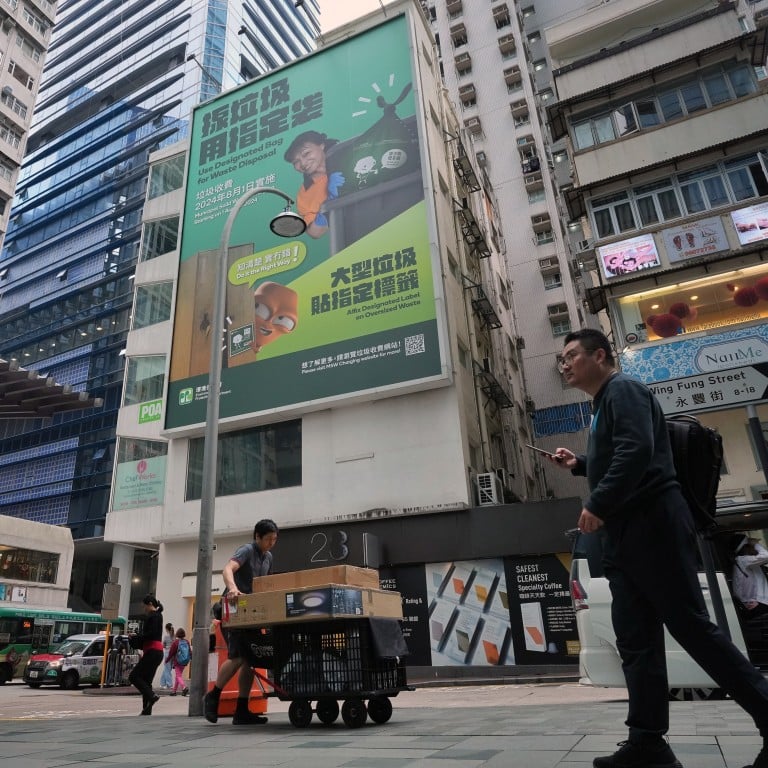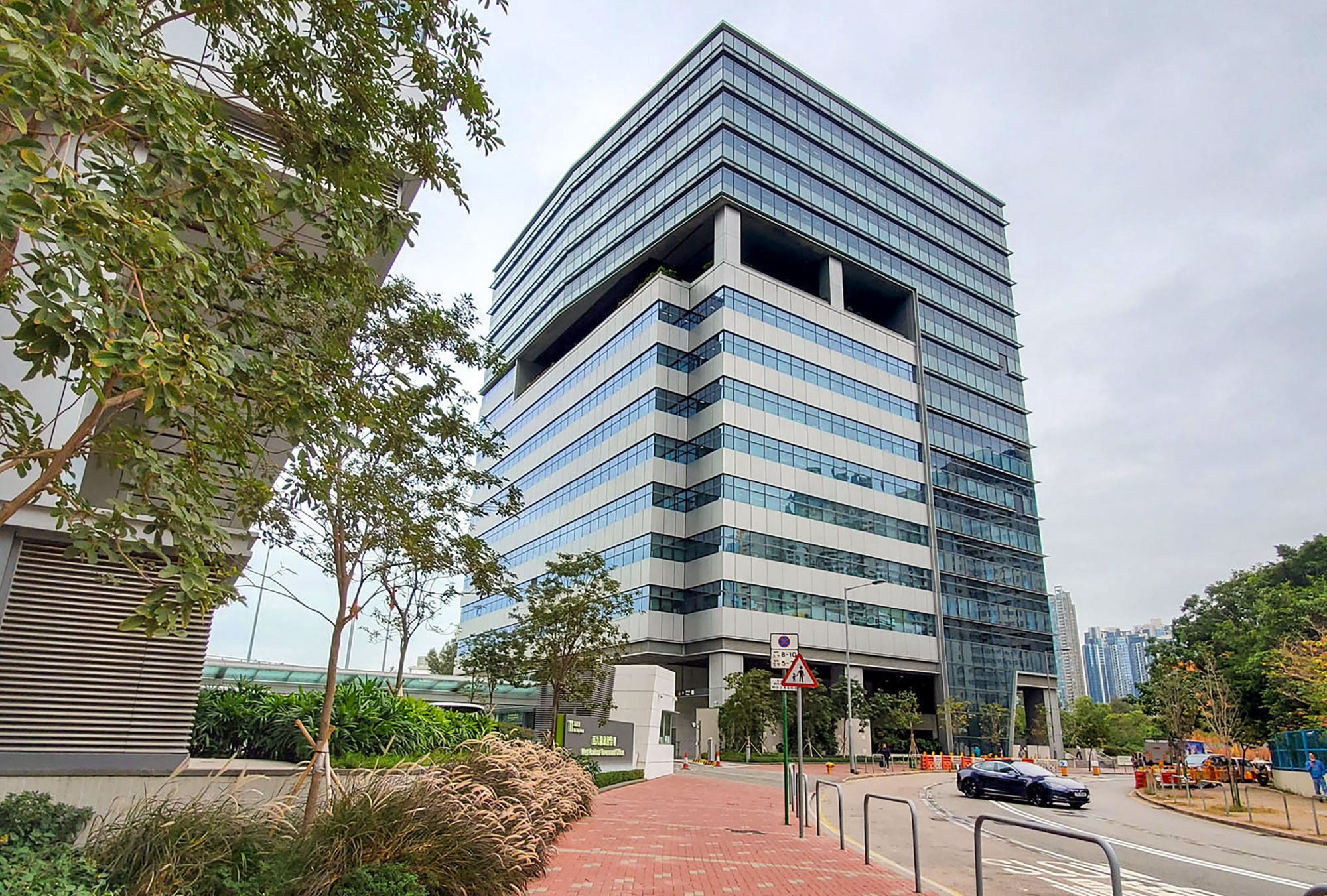
‘Miserably small’: Hong Kong government scales back trial run of waste charging, prompting criticism from green groups and lawmaker
- Trial run launching next month will now cover only 14 premises including one government office block and three private residential buildings
- Scheme was already delayed by four months so testing phase could show residents how the charging would work in practice
Authorities have scaled back a trial run of the controversial pay-as-you-throw scheme to be launched in Hong Kong next month and it will now cover only 14 premises, including one government office block and three private residential buildings.
The move immediately sparked claims by a green group and a lawmaker on Friday that the trial programme was “too small” to test the effectiveness of the already delayed citywide waste tax scheme to be implemented in August.
They also said the government had failed to live up to the promise made by Secretary for Environment and Ecology Tse Chin-wan in January that “some government buildings” would take the lead by demonstrating the waste charging scheme.
“No public schools, large parks, government dormitories, recreational facilities or clinics and hospitals under the Hospital Authority joined the trial scheme,” said Steven Chan Wing-kit, assistant environmental affairs manager at Green Earth.
“With a limited scale, we worry that the trial run will not allow members of the public to learn from practical operations and relieve their doubts.”

The charging scheme was earlier pushed back by four months after the city leader cited a need to better promote the policy amid public confusion.
Officials had previously said the trial run would involve the government picking some buildings to “demonstrate” the implementation of the scheme and ease residents into the new era of having to pay for every bag of trash they throw away.
But according to a paper prepared by the Environment and Ecology Bureau on Friday for a coming Legislative Council meeting, only 14 premises had been selected for the “demonstration scheme” to begin on April 1.
The West Kowloon Government Offices are the only government complex on the list, covering about 2,500 employees from eight departments. There is no office of the Environmental Protection Department or the Environment and Ecology Bureau there.
Other premises include three single-block private residential buildings in Kowloon City and Sham Shui Po, and two public housing blocks with 750 households in Tsuen Wan and Chai Wan.
There are also four eateries of various sizes, with between 40 to 600 seats, two residential care homes in Tuen Mun and two shopping centres in Tuen Mun and Tai Po.
Hong Kong waste-charging scheme expected to bring in HK$1.79 billion in first year
The Environment and Ecology Bureau said the demonstration scheme aimed at “pragmatically examining” the problems that could arise and reviewing the practices of different stakeholders including waste producers, frontline cleaning staff and waste collectors.
During the period, the government would provide designated rubbish bags and labels free of charge to all selected premises and collect operational data.
“We will also collect views from different stakeholders through opinion surveys to examine their preparedness for the implementation of [waste] charging and the possible problems that they may face,” the document stated.
The bureau did not say how long the trial would take but noted in the paper that it planned to brief Legco’s panel on environmental affairs on the outcome of the scheme in May or June.
Flushing food waste down the toilet? Hong Kong’s poor predict rubbish fee chaos
But lawmaker Edward Lau Kwok-fun of the pro-establishment Democratic Alliance for the Betterment and Progress of Hong Kong said the scale was “miserably small”.
The government should further push back the charging scheme if the trial run results were not good, he argued.
Lau, who is also the chairman of the panel, also expressed disappointment that only one government office building had been selected for the trial.
“At least, some more government office buildings in various districts of Kowloon, Hong Kong and the New Territories should be included to make the data more representative,” Lau said. “I am not sure if the information collected would be representative or useful.”
A bureau spokesman said it had no further comment.

